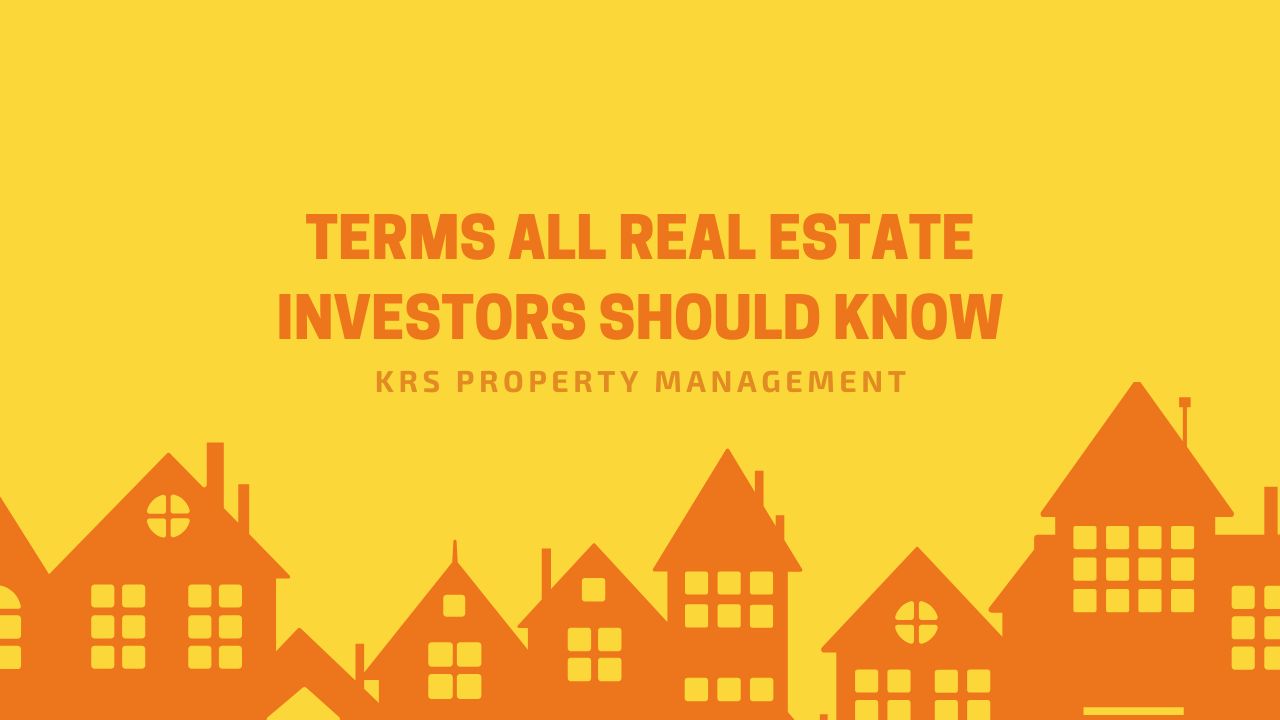
Do you know the difference between residential and commercial real estate? Can you explain what goes into a rental property analysis? If not, you’re not alone. If you’re a landlord looking to grow your rental portfolio, learning the language of the industry is essential.
Misunderstanding basic concepts can lead to signing the wrong contracts, choosing the wrong properties, or misjudging potential returns. Many landlords enter the real estate market without a full grasp of the terms that professionals use every day.
To help you navigate your investment journey more confidently, KRS Property Management put together this article to explain key terms every real estate investor should understand.
Key Investment Terms
Understanding these key investment terms will help you navigate the real estate market with confidence and make informed decisions at every stage of your investing journey.
Accessory Dwelling Unit (ADU)
An accessory dwelling unit is a small, independent living area built on the same property as a single-family house. Examples include garage apartments, basement apartments, or detached guest houses.
ADUs can provide additional rental income and increase the total value of your property. However, they are subject to local zoning laws and building codes, so it’s important to check local regulations before building or renting one.
Multi-Family Home
A multi-family home is a residential building that contains two or more separate housing units. Duplexes, triplexes, and apartment buildings are all examples.
These properties are popular among investors because they generate multiple rental incomes from a single property. Multi-family homes can also offer economies of scale, as maintenance and upgrades can benefit all units simultaneously.
Property Type
The term "property type" refers to the classification of real estate based on its use. Common categories include single-family homes, multi-family homes, commercial buildings, and industrial properties.
Understanding property types is essential because each comes with different risks, regulations, financing options, and income potential. For example, commercial properties often require longer leases and higher maintenance costs but may offer more stable tenants.
Rental Market Analysis
A rental market analysis is a process used to determine the optimal rental price for a property based on current market conditions.
It includes reviewing similar rental properties in the same area, looking at vacancy rates, rent trends, and demographic information. Conducting a proper rental market analysis helps landlords set competitive rents that attract tenants while maximizing income.
Rental Property Analysis
Rental property analysis involves evaluating a property's potential as an investment. This includes estimating monthly income, calculating expenses, forecasting cash flow, and reviewing long-term value growth.
Investors also look at factors like location, neighborhood trends, and property conditions. The goal is to determine whether a property will meet your financial objectives before purchasing or renting it out.
Residential Real Estate
Residential real estate refers to properties used for living purposes rather than for business. These include single-family homes, condominiums, townhouses, and multi-family homes up to four units.
Residential real estate is often more accessible to first-time landlords due to simpler financing and more familiar leasing terms. It also tends to have lower entry costs and broader tenant demand compared to commercial options.
Commercial Real Estate
Commercial real estate refers to buildings or spaces used for business purposes. This can range from office buildings and retail centers to warehouses and large apartment buildings (five or more units).
Commercial real estate typically requires more complex financing, longer lease agreements, and professional management. However, it often provides higher income potential and less tenant turnover than residential properties.
Depreciation
Depreciation allows landlords to deduct the cost of wear and tear on their rental property over a set period, as defined by the IRS.
This tax deduction can lower your taxable income, even if the property value increases over time. Understanding how depreciation works can help landlords plan more efficiently for taxes and long-term profitability.
Gross Rent Multiplier (GRM)
The Gross Rent Multiplier is a simple calculation used to compare potential investment properties. It is found by dividing the purchase price by the gross annual rental income.
For example, a $200,000 property earning $20,000 a year in rent would have a GRM of 10. While GRM doesn't account for expenses, it’s a helpful starting point when evaluating properties quickly.
1031 Exchange
A 1031 Exchange is a tax-deferral strategy that lets investors sell a rental and reinvest the proceeds in another property of equal or greater value, while deferring capital gains taxes.
This can be a powerful tool for growing your portfolio without paying taxes on each sale, but there are strict rules and timelines that must be followed.
Tenant Screening
Tenant screening is the process of evaluating rental applicants to ensure they are likely to pay rent on time and take care of the property.
It usually includes a background check, credit report, rental history, and income verification. Effective screening helps prevent issues such as late payments, damage, or evictions.
Turnover Rate
The turnover rate refers to how often tenants move in and out of your property. High turnover means more frequent cleaning, repairs, and vacancy periods.
These costs can eat into profits. Maintaining good tenant relationships and offering competitive amenities can reduce turnover and stabilize your rental income.
Property Management
Property management is the process of taking care of the day-to-day tasks involved in running a rental property. This includes collecting rent, handling repairs, dealing with tenants, and ensuring compliance with housing laws.
Many landlords choose to hire professional managers to save time, reduce stress, and maintain a consistent income stream.
Bottom Line
Understanding these 15 essential terms gives landlords a strong foundation for making informed investment decisions.
From knowing the difference between residential and commercial real estate to conducting a proper rental property analysis, each term plays a critical role in managing and growing a successful rental portfolio.
KRS Property Management helps landlords navigate all aspects of property ownership and rental management. Whether you need assistance with tenant screening, rental market analysis, or maintaining your property, our team is here to support your goals.






